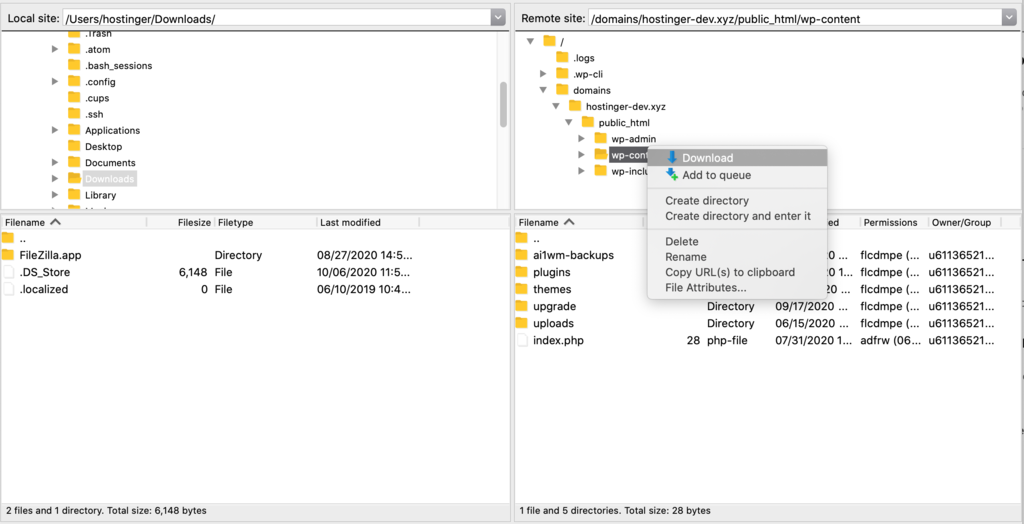

The best solution I’ve found is to identify and delete any files that are zero-bytes in length before re-running another copy. Since the zero-byte files will have a newer time stamp than the source data, they become impossible to “fix” without potentially affecting surrounding files. The problems come when you re-run the copy in the hope that the zero-byte files in the destination folder structure are updated with healthy ones from the source.


Your counter works nice.A common problem with data migration at the file level is that you can end up with users complaining of zero-length files.

Doing this will clear the file content and it will make sure that Nasty, isn't it? REMEMBER to open the file with the 'w' mode (truncate Value ( $incr ) it ads it ALONG the old value. Why? notice the second fopen -> $cont=fopen('cont.txt','a')
#ZERO BYTE FILE WORDPRESS CODE#
Watch out for mistakes in writting a simple code for a hit counter: Since the loop only breaks if fwrite() returns false or successfully writes all bytes, an infinite loop will occur on failure. This code is BAD, as a broken pipe will result in fwrite() infinitely looping with a return value of 0. You *must* check for a return value of 0 and either abort immediately or track a maximum number of retries.īelow is the example from the docs. This means the example fwrite_stream() code from the docs, as well as all the "helper" functions posted by others in the comments are all broken.
#ZERO BYTE FILE WORDPRESS FULL#
Therefore, looping with repeated calls to fwrite() until the sum of number of bytes written equals the strlen() of the full value or expecting false on error will result in an infinite loop if the connection is lost. Any other error, just as a broken pipe or closed connection, will result in a return value of less than strlen($string), in most cases 0. The function will only return false if you pass in invalid arguments.
#ZERO BYTE FILE WORDPRESS ARCHIVE#
Getting Started Introduction A simple tutorial Language Reference Basic syntax Types Variables Constants Expressions Operators Control Structures Functions Classes and Objects Namespaces Enumerations Errors Exceptions Fibers Generators Attributes References Explained Predefined Variables Predefined Exceptions Predefined Interfaces and Classes Context options and parameters Supported Protocols and Wrappers Security Introduction General considerations Installed as CGI binary Installed as an Apache module Session Security Filesystem Security Database Security Error Reporting User Submitted Data Hiding PHP Keeping Current Features HTTP authentication with PHP Cookies Sessions Dealing with XForms Handling file uploads Using remote files Connection handling Persistent Database Connections Command line usage Garbage Collection DTrace Dynamic Tracing Function Reference Affecting PHP's Behaviour Audio Formats Manipulation Authentication Services Command Line Specific Extensions Compression and Archive Extensions Cryptography Extensions Database Extensions Date and Time Related Extensions File System Related Extensions Human Language and Character Encoding Support Image Processing and Generation Mail Related Extensions Mathematical Extensions Non-Text MIME Output Process Control Extensions Other Basic Extensions Other Services Search Engine Extensions Server Specific Extensions Session Extensions Text Processing Variable and Type Related Extensions Web Services Windows Only Extensions XML Manipulation GUI Extensions Keyboard Shortcuts ? This help j Next menu item k Previous menu item g p Previous man page g n Next man page G Scroll to bottom g g Scroll to top g h Goto homepage g s Goto searchĪfter having problems with fwrite() returning 0 in cases where one would fully expect a return value of false, I took a look at the source code for php's fwrite() itself.


 0 kommentar(er)
0 kommentar(er)
